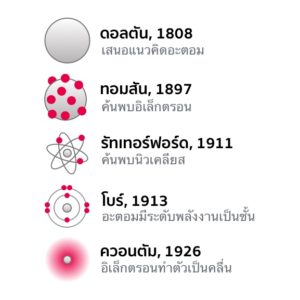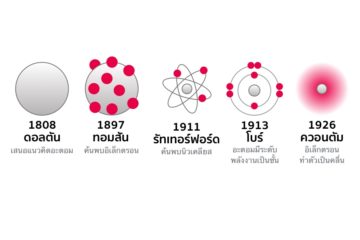ปรับพื้นฐาน Calculus
- ปรับพื้นฐาน Calculus - 1,800 ฿

Preview this course - (3 preview lessons)
สมัครเรียน
คอร์สเรียนพิเศษวิศวะออนไลน์
คอร์สปรับพื้นฐาน
Preview this course - (3 preview lessons)
สมัครเรียน
Preview this course - (2 preview lessons)
สมัครเรียน
Preview this course - (2 preview lessons)
สมัครเรียน
Preview this course - (3 preview lessons)
สมัครเรียน
Preview this course - (2 preview lessons)
สมัครเรียน
Preview this course - (2 preview lessons)
สมัครเรียนจะเรียนที่ be-enigneer ให้จบก่อนสอบ 1 เดือน แล้วมาทำสรุปอีกรอบ แล้วก็ค่อยๆเริ่มทำโจทย์ โดยส่วนใหญ่หนูจะให้เวลาในการทำโจทย์ 1 สัปดาห์เต็มๆเลยค่ะ

พี่ตั้มเป็นคนที่สอนละเอียดมาก เขาชอบสอนตั้งแต่ที่มาต่างๆซึ่งมันทำให้เรามีพื้นฐานที่ดี และสามารถต่อยอดขึ้นไปได้เรื่อยๆ แบบนี้จะทำให้เราจำได้ดีมากยิ่งขึ้น

Feynman Technique เทคนิคการเรียนเรื่องใหม่ โดยหนึ่งในนักฟิสิกส์ที่ทรงคุณค่าและมีอิทธิพลมากที่สุดในโลกของศตวรรษที่ 20

ในการจัดอันดับนักฟิสิกส์ยอดเยี่ยมตลอดการ โดยสำนักข่าวบีบีซี ริชาร์ด ฟายน์แมน (Richard Feynman) เป็นนักฟิสิกส์สมัยใหม่เพียงคนเดียวที่ติด 10 อันดับแรกของโลก แม้แต่สตีเฟ่น ฮอว์คิง ยังได้อันดับ 16
ผลงานของฟายน์แมนมีมากมาย เช่น ทฤษฎีควอนตัมอิเล็กโทรไดนามิกส์ ซึ่งทำให้เขาได้รางวัลโนเบล เมื่อปี ค.ศ. 1965
ในช่วงที่ฟายน์แมนเป็นอาจารย์อยู่ที่ California Institute of Technology (Caltech) เขาได้รับความชื่นชมในด้านการสอนวิชาฟิสิกส์เป็นอย่างมาก ด้วยการสอนที่น่าสนใจและแปลกใหม่ สามารถอธิบายเรื่องที่ซับซ้อนให้เข้าใจได้ง่ายและสนุก แม้แต่บิลล์ เกตต์ ผู้ก่อตั้งไมโครซอฟต์เองก็ยังชื่นชมในวิธีการสอนของฟายน์แมน การสอนของฟายน์แมนถูกบันทึกและกลายเป็นหนังสือหลายเล่ม เล่มที่มีชื่อเสียงมากก็คือ The Feynman Lectures on Physics

วิธีการเรียนรู้ของฟายน์แมนในช่วงที่เขายังเรียนอยู่ที่ Princeton University ก็เป็นอีกสิ่งที่มีชื่อเสียงและรู้จักกันดีในชื่อ “Feynman technique” สมมติว่าเราอยากจะทำความเข้าใจเรื่องราวสักอย่างที่เป็นเรื่องใหม่ หรือเรื่องที่เรายังไม่เข้าใจ การใช้ Feynman technique มีขั้นตอนตามนี้ครับ
ขั้นที่ 1: เรากำลังจะศึกษาเรื่องอะไร
หากระดาษเปล่าหรือสมุดสักเล่มมา เขียนเรื่องที่เรากำลังจะศึกษาและลองเขียนทุกสิ่งที่เรารู้เกี่ยวกับเรื่องนั้นลงไป และกลับมาเขียนบันทึกเพิ่มเติมทุกครั้งเมื่อได้ศึกษาค้นคว้าเพิ่มเติม
ขั้นที่ 2: ทำเรื่องยากให้เข้าใจง่าย
คราวนี้ลองอธิบายเรื่องเดิมที่เราต้องการศึกษาด้วยภาษาของเราเอง พยายามใช้ภาษาหรือคำที่เข้าใจง่าย ลองจินตนาการว่าเราจะทำอย่างไรถ้าจะต้องสอนเรื่องนั้นให้เด็กที่ไม่เคยรู้เรื่องให้เข้าใจ เพราะใครๆ ก็ทำเรื่องง่ายให้ยากขึ้นได้ แต่มีแค่บางคนเท่านั้นที่ทำเรื่องยากให้เข้าใจง่ายได้
ขั้นที่ 3: หาช่องโหว่
จากขั้นที่ 2 ลองดูอีกทีว่ายังมีจุดไหนที่รู้สึกว่ายังไม่รู้ ยังไม่เคลียร์ หรือตกหล่นไปหรือไม่ ถ้าเจอช่องโหว่เหล่านี้ก็ลงมือหาข้อมูลเพิ่มเติมและลองเรียบเรียงดูอีกครั้ง
ขั้นที่ 4: ทบทวนอีกที
หลังอุดช่องโหว่เรียบร้อยแล้ว ก็มาทบทวนสิ่งที่เราลงมือเขียนไว้อีกครั้ง อย่าลืมทำให้เรื่องของเราเข้าใจได้ง่ายๆ จากนั้นอาจลองทดสอบโดยการอธิบายเรื่องนั้นให้คนอื่นฟังว่าเข้าใจหรือไม่ มีตรงไหนที่ยังเข้าใจยาก หรือสับสนอีกหรือเปล่า

Feynman technique เป็นหนึ่งในเทคนิคที่ดีซึ่งสามารถนำไปปรับใช้ได้กับการเรียนรู้เรื่องราวใหม่ๆ ไม่ใช่เฉพาะกับการวิชาฟิสิกส์เท่านั้น นอกจากนี้แต่ละคนอาจมีวิธีการเรียนรู้สิ่งต่างๆ ด้วยวิธีการที่แตกต่างกัน ยังไงลองเอาเทคนิคนี้ไปปรับใช้ให้เหมาะกับเราดูนะครับ

แต่ถึงจะเหมือนกันแต่แคลฯ1ระดับมหาลัย จะลึกกว่า ม.ปลายเยอะนะ เช่นตอน ม.ปลายเราจะเรียนการดิฟฟังก์ชันง่ายๆ แต่ในมหาลัยเราจะต้องดิฟได้ทุกฟังก์ชันครับ
เรียนดิฟจบก็มาต่อที่อินทิเกรต และแน่นอนเราจะต้องอินทิเกรตฟังก์ชันพื้นฐานเป็นทุกฟังก์ชัน สิ่งที่ท้าทายเฟรชชี่อย่างพวกเราที่สุดสำหรับวิชานี้ยกให้ เรื่อง“เทคนิคอินทิเกรต” ทั้ง 5 แบบเลยครับ เจอหัวข้อนี้ไปดิฟก่อนหน้าคือง่ายไปเลย

วิชานี้ถือว่าเป็นวิชาปราบเซียนสำหรับเด็กปี 1 ถึงแม้ว่าเนื้อหาดูคล้ายกับตอน ม.ปลาย แต่มีความลึก เยอะกว่าและยากกว่า จะเริ่มมีการใช้แคลคูลัสเข้ามาผสมกับเนื้อหาฟิสิกส์ และอาจารย์จะสอนเร็วมากกกก น้องๆ หลายคนปรับตัวไม่ทัน ถ้าอยากเรียนฟิสิกส์ 1 ให้รู้เรื่องมากขึ้นพี่ขอแนะนำให้ทบทวนเรื่องเวกเตอร์ แคลคูลัส และเนื้อหาฟิสิกส์ตอน ม.ปลายให้แม่นๆ ครับ

การทดลองในวิชานี้จะล้อไปกับเนื้อหาในวิชาเลคเชอร์ โดยจะเริ่มตั้งแต่ฝึกทักษะการใช้อุปกรณ์การวัดที่มีความละเอียด เช่น เวอร์เนียร์ ไมโครมิเตอร์ วิเคราะห์ความคลาดเคลื่อน (error) จากการวัด แล้วก็จะไปสู่การทดลองต่างๆ เช่น การหาค่า g จากการแกว่งลูกตุ้ม การหาค่า k ของสปริง การแกว่งของแท่งไม้ คลื่นนิ่งในเส้นเชือก ความหนืดของของไหล (มหาลัยต่างๆ อาจมีการทดลองที่แตกต่างกัน) การทดลองส่วนใหญ่จะเอาข้อมูลที่ทำการวัดได้มาเขียนกราฟเส้นตรง แล้วหาปริมาณที่ต้องการจากกราฟครับ

เนื้อหาของวิชานี้เราจะเรียนตั้งแต่สิ่งที่เล็กมากๆในเนื้อวัสดุนั่นคือโครงสร้างอะตอมจนไปถึงสมบัติต่างๆไม่ว่าจะเป็น ทางกล ทางเคมี และทางความร้อน
จากนั้นจะเข้าสู่หัวข้อ “Phase diagram” หรือศึกษาการเปลี่ยนเฟสของวัสดุต่างๆ
และในตอนท้ายน้องๆจะได้เรียนการเลือกใช้วัสดุให้เหมาะสม เช่น โลหะผสม พอลิเมอร์ เซรามิก ฯลฯ

วิชานี้จะสอนน้องตั้งแต่อุปกรณ์เขียนแบบมีอะไรบ้าง รูปลักษณ์มาตรฐานสำหรับการอ่านแบบ drawing ที่วิศวกรต้องรู้ การเขียนแบบไอโซเมตริกและออบลีคทำอย่างไร จนไปถึงแนะนําการใช้คอมพิวเตอร์ช่วยในการเขียนแบบ
ยากหรือป่าว? อันนี้แล้วแต่ความถนัด แต่ที่แน่ๆคือ งานเยอะมากกก ที่สำคัญคืองานที่ส่งต้องละเอียดมาก ใครทำชุ่ยๆไปโดนหักคะแนนยับ ฮ่าๆ

ดูจากชื่อพี่ว่าน้องคงคุ้นๆมาจาก ม.ปลายกันใช่มั้ยครับ แต่อย่างที่พี่บอกครับ เนื้อหาของมหา’ลัยจะลึกกว่ามาก

จากนั้นนำผลที่ได้มาวิเคราะห์ว่าตรงกับทฤษฏีที่เรียนมาหรือไม่ ถือเป็นอีก 1 วิชาที่สนุกและได้ความรู้มากๆ

มาเริ่มกันที่ข้อ 1. น้องจะต้องเรียนตั้งแต่กราฟ, domain-range ของฟังก์ชันหลายตัวแปร(เหมือนกลับไปเรียนเรื่องฟังก์ชันใหม่) จนไปถึงหัวข้อใหญ่ๆคือการเคิล(การดิฟของฟังก์ชันที่มากกว่า 1 ตัวแปร) และ อินทิเกรตหลายชั้น
ส่วนข้อ 2. แม้จะชื่อคล้ายกับ ม.ปลาย แต่เราจะเรียนลำดับ และ อนุกรม ชนิดอนันต์เท่านั้น น้องๆคิดว่าผลบวกที่บวกกันไม่สิ้นสุดจะไปจบที่ไหน? ถ้าอยากรู้ต้องเรียน ![]() แต่บอกไว้ก่อน สำหรับพี่ยกให้บทนี้เป็นบทที่ยากติด TOP3 ในจักรวาลแคลคูลัสเลย
แต่บอกไว้ก่อน สำหรับพี่ยกให้บทนี้เป็นบทที่ยากติด TOP3 ในจักรวาลแคลคูลัสเลย

ปฏิเสธไม่ได้ครับว่าเนื้อหาในวิชานี้ก็ยากกว่า Physics 1 แน่นอน ต้องใช้จินตนาการมากขึ้น มีการใช้คณิตศาสตร์มากขึ้นทั้งเวกเตอร์และแคลคูลัสเข้ามาคำนวณแบบจริงจัง แต่ก็ไม่ได้ยากไปซะทุกเรื่องนะครับ เรื่องที่ง่ายๆ เรียนแล้วเห็นภาพชัดๆ ก็มีอย่างเช่นเรื่องแสง วิชานี้อาจจะยากซักหน่อย แต่ถ้าน้องๆ เปิดใจ เรียนด้วยความเข้าใจ และทำโจทย์บ่อยๆ ก็จะผ่านวิชานี้ไปได้แน่นอนครับ !


โดยในวิชานี้จะเรียนตั้งแต่ชนิดของข้อมูล การเขียน flow chart การเขียนโปรแกรมแบบมีเงื่อนไข คําสั่งทํางานแบบวน loop การเรียนฟังก์ชันเป็นต้น โดยในแต่ละหัวข้อที่เรียนเราก็จะได้รับ assignment ให้ลองเขียนโปรแกรมแล้วส่งในทุกๆ week
และในช่วงท้าย น้องๆจะได้ทำโปรเจคเขียนโปรแกรมจริงๆเป็น final project ของวิชานี้ครับ

หากน้องๆคนไหน สนใจคอร์สปูพื้นฐานสู่การเรียนวิศวะอยากมั่นใจ ทางสถาบัน be-engineer ขอเสนอคอร์สปรับพื้นฐาน 3 วิชา ได้แก่
1. แคลคูลัส: be-engineer.com/pre-calculus
2. ฟิสิกส์: be-engineer.com/pre-physics
3. เคมี: be-engineer.com/pre-chemistry
เรื่องอุปนัยเชิงคณิตศาสตร์ หรือ Mathematical Induction จะพูดถึงการพิสูจน์ประโยคทางคณิตศาสตร์ เช่น ตอน ม.ปลาย เราคงเคยเจอสมการที่แสดงผลบวก n พจน์ใดๆ นั่นคือ ∑n=n(n+1)/2 อุปนัยเชิงคณิตศาสตร์จะมาพิสูจน์สมการนี้ (หรืออีกหลายๆสมการ) ว่าเป็นจริง..จริงหรือไม่
น้องๆสามารถ Download เอกสารเพื่อประกอบการทดลองเรียนได้เลยครับ
สมัครเรียนได้ที่
![]()
รายละเอียดคอร์ส Calculus1 (หลักสูตรวิศวะ ลาดกระบังฯ)
บทที่1 : Mathematical Induction
บทที่2: ฟังก์ชัน
บทที่3: Limit and Continuity
บทที่4: Derivative
บทที่5: Application of derivative
บทที่6: Basic of integration
เรียนกับพี่จุ๊แล้วเป็นไงบ้าง
เป็นเวลามากกว่า 200 ปี ที่นักวิทยาศาสตร์พยายามสร้างแบบจำลองเพื่ออธิบายโครงสร้างและส่วนประกอบภายในอะตอม แบบจำลองอะตอมที่มีชื่อเสียงมีอยู่ 5 แบบ เรามาย้อนความหลังดูกันว่าแต่ละแบบมีไอเดียมาจากอะไรกันครับ
ในปี ค.ศ.1808 John Dalton เสนอแนวคิดว่าหน่วยเล็กที่สุดของสสารเรียกว่า “อะตอม” โดยอะตอมของธาตุชนิดเดียวกันมีคุณสมบัติเหมือนกัน อะตอมของธาตุชนิดหนึ่งไม่สามารถเปลี่ยนไปเป็นอะตอมของธาตุชนิดอื่นได้ และธาตุต่างชนิดกันสามารถรวมกันกลายเป็นสารประกอบได้ แบบจำลองอะตอมของเขาก็เป็นเพียงแค่ทรงกลมแบบง่ายๆ ครับ

ก่อนที่จะไปถึงแบบจำลองอะตอมของทอมสัน มีการค้นพบรังสีชนิดหนึ่งที่เกิดขึ้นในหลอดสุญญากาศที่มีขั้วโลหะสองขั้ว (anode และ cathode) เมื่อให้ความต่างศักย์ไฟฟ้ากับขั้วทั้งสองจะมีรังสีเดินทางจากขั้วแคโทดไปยังขั้วแอโนดและเกิดการเรืองแสงขึ้น รังสีนี้เกิดการเบี่ยงเบนในสนามไฟฟ้าและสนามแม่เหล็กได้อีกด้วย แสดงว่ารังสีนี้ประกอบด้วยอนุภาคที่มีมวลและประจุไฟฟ้า ทอมสันเรียกรังสีนี้ว่า รังสีแคโทด (cathode ray)

J.J. Thomson ทำการทดลองวัดอัตราส่วนประจุต่อมวล (e/m) ของรังสีแคโทดโดยใช้ขั้วแคโทดที่ทำมาจากโลหะชนิดต่างๆ พบว่ายังคงวัดอัตราส่วน e/m ได้เท่าเดิมทุกครั้ง เขาจึงสรุปว่าอนุภาคของรังสีแคโทดที่เกิดจากโลหะชนิดต่างๆ เป็นอนุภาคเดียวกัน เรียกอนุภาคนี้ว่า “อิเล็กตรอน” และสสารทุกชนิดจะประกอบด้วยอิเล็กตรอน


แม้ว่าทอมสันจะวัดอัตราส่วน e/m ของอิเล็กตรอนได้ แต่ก็ยังไม่รู้ว่าอิเล็กตรอนมีประจุไฟฟ้าเท่าไหร่ คนที่ทำการวัดประจุของอิเล็กตรอนได้เป็นคนแรกคือ Robert Millikan เขาวิธีการทำให้หยดน้ำมันเกิดประจุไฟฟ้าแล้วเคลื่อนที่ไปในสนามไฟฟ้า แล้วสังเกตการเคลื่อนที่ของหยดน้ำมัน ด้วยการคำนวณ (ในวิชาฟิสิกส์) พบว่าประจุไฟฟ้าบนหยดน้ำมันจะมีค่าเป็นจำนวนเท่าของ 1.6 x 10-19 คูลอมบ์ แสดงว่าประจุที่เล็กที่สุดของอิเล็กตรอนก็ควรจะมีค่าเท่านี้เช่นกัน เมื่อนำข้อมูลนี้ไปประกอบกับค่า e/m ของทอมสัน ทำให้พบว่าอิเล็กตรอนเป็นอนุภาคที่มีมวลน้อยมากๆ

ทอมสันได้เสนอแบบจำลองของอะตอมในปี ค.ศ. 1904 โดยสภาพปกติอะตอมจะเป็นกลางทางไฟฟ้า เนื้อของอะตอมมีประจุบวกและมีอิเล็กตรอนที่มีประจุลบกระจายอยู่ในอะตอม คล้ายๆ ขนมปังลูกเกด (ในต่างประเทศจะเรียกแบบจำลองอะตอมนี้ว่า “plum-pudding model”)


การทดลองที่เป็นจุดเปลี่ยนครั้งสำคัญของแบบจำลองอะตอม เกิดขึ้นโดย Ernest Ruttherford และคณะ เขาทดลองยิงลำของอนุภาคแอลฟาซึ่งมีประจุบวกผ่านแผ่นทองคำบางๆ แล้วสังเกตการเบนของอนุภาคแอลฟาที่จะไปชนกับฉากที่ทำจาก ZnS ซึ่งจะทำให้เกิดการเรืองแสงขึ้น
ผลการทดลองที่พบก็คืออนุภาคแอลฟาแทบทั้งหมดไม่เกิดการเบี่ยงเบนเลย (ก็คือทะลุแผ่นทองคำไปตรงๆ !) แสดงว่าพื้นที่ส่วนใหญ่ในอะตอมน่าจะเป็นที่ว่าง แต่ก็ยังมีอนุภาคแอลฟาบางส่วนที่มีการเบี่ยงเบนไปจากเดิมนิดหน่อย เพราะได้รับแรงผลักจากอะตอมที่มีประจุไฟฟ้าบวกและได้รับแรงดึงดูดจากอิเล็กตรอนที่มีประจุไฟฟ้าลบและกระจายอยู่ทั่วอะตอม

แต่สิ่งที่ทำให้รัทเทอร์ฟอร์ดแปลกใจคือ ทำไมถึงมีอนุภาคแอลฟาบางตัวสะท้อนกลับมาทางเดิม ถึงแม้ว่าจะเป็นส่วนน้อยมากๆ ก็ตาม จุดนี้ทำให้รัทเทอร์ฟอร์ดคิดว่าแบบจำลองของทอมสันไม่น่าจะถูกต้อง และคิดต่อไปอีกว่าถ้าอนุภาคแอลฟาที่มีประจุบวกกระเด็นกลับมาทางเดิมได้ แสดงว่ามันน่าจะเข้าไปชนกับอะไรสักอย่างที่มีมวลเยอะมากๆ และมีประจุไฟฟ้าบวกเหมือนกัน
ทำให้ในปี ค.ศ. 1911 รัทเทอร์ฟอร์ดเสนอแบบจำลองอะตอมที่มี “นิวเคลียส” ซึ่งมีมวลเยอะมากและมีประจุบวกเป็นแกนกลางของอะตอม ส่วนอิเล็กตรอนมีมวลน้อยมากเคลื่อนที่อยู่รอบๆ นิวเคลียส

ถ้านำหลอดบรรจุแก๊สที่มีความดันต่ำต่อกับความต่างศักย์ไฟฟ้าสูงๆ แก๊สจะเกิดการแตกตัวและเปล่งแสงออกมาเป็นเส้นสเปกตรัมได้ แก๊สแต่ละชนิดจะให้เส้นสเปกตรัมที่มีสีต่างๆ กันเป็นลักษณะเฉพาะตัว นี่เป็นหนึ่งในปรากฏการณ์ที่ไม่สามารถอธิบายได้ด้วยแบบจำลองอะตอมของรัทเทอร์ฟอร์ด

จนกระทั่ง Max Planck ได้เสนอแนวคิดว่าคลื่นแม่เหล็กไฟฟ้าเป็นอนุภาคโฟตอน และพลังงานของโฟตอนมีค่าไม่ต่อเนื่อง Niels Bohr นำแนวคิดนี้มาใช้อธิบายการเกิดเส้นสเปกตรัมของธาตุแต่ละชนิด ในปี ค.ศ. 1921 โบร์ได้เสนอแบบจำลองอะตอมที่ยังคงมีนิวเคลียสเป็นแกนกลางแต่อิเล็กตรอนจะโคจรอยู่ใน “ระดับชั้นพลังงาน” ซึ่งมีค่าไม่ต่อเนื่อง ในแต่ละชั้นพลังงานจะมีอิเล็กตรอนเข้าไปอยู่ ระดับชั้นพลังงานที่อยู่ใกล้นิวเคลียสจะมีพลังงานต่ำ ส่วนชั้นที่อยู่ห่างจากนิวเคลียสออกไปจะมีพลังงานสูงกว่า
แบบจำลองของโบร์มีลักษณะคล้ายกับว่าดวงอาทิตย์เป็นนิวเคลียส และดาวเคราะห์ที่โคจรรอบดวงอาทิตย์เป็นอิเล็กตรอน ก็เลยเรียกแบบจำลองลักษณะนี้ว่า planetary model

เมื่อใช้แบบจำลองอะตอมของโบร์ จะอธิบายได้ว่าเส้นสเปกตรัมเกิดจากการปลดปล่อยพลังงานของอิเล็กตรอนจากระดับชั้นที่มีพลังงานสูงลงมาที่ระดับชั้นพลังงานต่ำกว่า ธาตุแต่ละชนิดมีระดับชั้นพลังงานที่ไม่เหมือนกัน ทำให้อิเล็กตรอนเกิดการคายพลังงานต่างกันและเกิดเส้นสเปกตรัมที่มีลักษณะเฉพาะตัว
ในช่วงเวลาต่อมามีการพัฒนาวิชากลศาสตร์ควอนตัม (quantum mechanics) เพื่อใช้ทำนายพฤติกรรมของอนุภาคที่มีขนาดเล็ก หนึ่งในแนวคิดที่สำคัญคืออนุภาคสามารถทำตัวเป็นคลื่นได้ เราจึงไม่สามารถบอกตำแหน่งที่อนุภาคนั้นอยู่ได้อย่างชัดเจน
จากไอเดียนี้ทำให้อิเล็กตรอนในวงโคจรถูกมองเป็นคลื่นด้วยเช่นกัน เราจึงไม่สามารถบอกตำแหน่งที่อิเล็กตรอนอยู่ในวงโคจรแต่ละชั้นได้ แต่บอกได้เพียง “โอกาส” หรือความน่าจะเป็นในการเจออิเล็กตรอนที่ตำแหน่งต่างๆ ภายในอะตอม แบบจำลองอะตอมจากแนวคิดนี้ถูกแทนด้วยกลุ่มหมอกของอิเล็กตรอน (electron cloud) โดยบริเวณที่มีกลุ่มหมอกของอิเล็กตรอนอยู่หนาแน่นแสดงว่ามีโอกาสที่จะพบอิเล็กตรอนสูงนั่นเอง

แม้ว่าแบบจำลองอะตอมของโบร์จะถูกนำไปใช้ในการอธิบายปฏิกิริยาต่างๆ ในวิชาเคมี แต่ในปัจจุบันแบบจำลองอะตอมที่เป็นที่ยอมรับก็คือแบบจำลองอะตอมตามแนวคิดกลศาสตร์ควอนตัม และถ้าในอนาคตมีการค้นพบแนวคิดที่สามารถอธิบายปรากฏการณ์บางอย่างของอะตอมที่ยังไม่มีใครค้นพบ เราก็อาจจะมีแบบจำลองอะตอมใหม่ๆ เกิดขึ้นมาอีกก็ได้ครับ

credit: th.depositphotos.com, toppr.com, britannica.com, khanacademy.org, th.wikipedia.org, chemistrygod.com, publiclab.org, letstalkscience.ca



